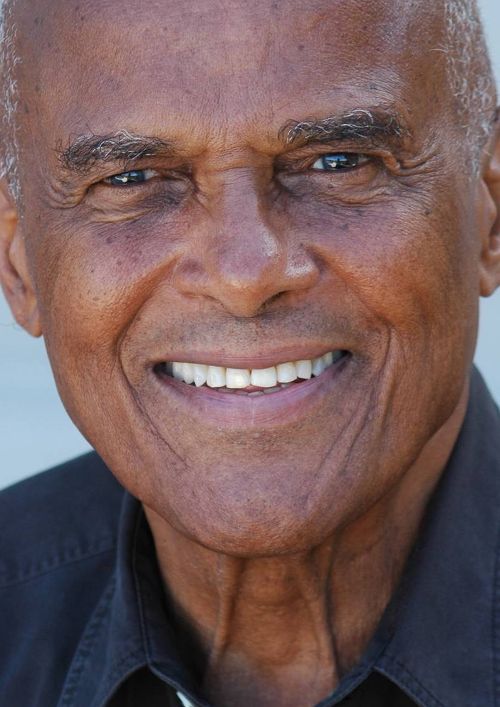Former King of Calypso, and major civil-rights activist, whose career saw many twists and turns in seven decades. Harry Belafonte was an actor, humanitarian and the “King” of Calypso. He is considered one of the greatest postwar performers. He was one of the most popular African-American pop stars of all time. His talent, looks and ability to masterfully assimilate folk, jazz and worldbeat rhythms enabled him to reach a level that is unmatched in mainstream popularity and crossover appeal in the years before the civil rights movement. This cultural uprising, which he helped to spearhead, saw Belafonte become a major star in pop music. Harold George Belafonte, Jr. was born March 1, 1927, in Harlem, New York. He was the son of Caribbean-born immigrants. At eight years old, he and his mother returned to Jamaica with her mother. They stayed there for five more years. Belafonte returned to the U.S. and dropped out of school to enlist with the U.S Navy. After his discharge, he settled in New York City to pursue a career in acting. He performed with the American Negro Theatre, while also studying drama at Erwin Piscator’s famed Dramatic Workshop, alongside Tony Curtis and Marlon Brando. Belafonte was eventually offered a singing role and he opened his own club. He began his career as a straight-pop singer and launched his recording career with the Jubilee label in 1950. However, he discovered folk music at the beginning of the 1950s when he studied material from the Library of Congress’ American Folk Songs archives. He also discovered West Indian music. Belafonte made his debut in jazz at the Village Vanguard with Millard Thomas. In 1953, Bright Road was his first film. He won a Tony Award for his performance in John Murray Anderson’s Almanac. He rose to stardom with his role as Carmen Jones in Otto Preminger’s film adaptation. In 1956, he signed to RCA and issued Mark Twain u0026 Other Folk Favorites. This album reached number three on the Billboard charts. His next album, simply called Belafonte reached number one and sparked a national craze in calypso music. Calypso, which was also released in 1956, topped charts for an astonishing 31 weeks, thanks to hits such as “Jamaica Farewell”, “Banana Boat, Day-O” and “Jamaica Farewell”. After the success of 1957’s An Evening with Belafonte with its hit “Mary’s Boy Child”, Belafonte returned back to film and used his considerable financial resources to make the controversial film Island in the Sun. His character is seen contemplating an affair with Joan Fontaine, a white woman. In 1959’s Odds Against Tomorrow, he was cast as a bank robber who is partnered with a racist accomplice. In 1959, he also released Belafonte At Carnegie Hall, a recording from a sold out April performance. It spent more than three years on the charts. Belafonte Returns to Carnegie Hall was followed in 1960 by Odetta and Miriam Makeba. Belafonte was the first black television producer at the beginning of the 1960s. His special Tonight with Harry Belafonte won him an Emmy in the same year. He was dissatisfied by filmmaking but continued to produce prolific albums with Jump Up Calypso in 1961 and The Midnight Special in 1962, which featured the first recorded appearance of a young harmonica player, Bob Dylan. Belafonte’s commercial impact began to decline as the British Invasion and the Beatles dominated the pop charts. 1964’s Belafonte At the Greek Theatre was his final Top 40 album. Other efforts, such as 1965’s An Evening with Belafonte/Makeba or 1966’s In My Quiet Room, failed to make it into the Top 100. Belafonte’s final Billboard chart appearance was in 1969’s Homeward Bound. However, he continued to record. In 1970’s The Angel Levine, Belafonte made his first movie appearance in more than a decade and focused on his civil rights activism. He continued to work in recording, although less often after leaving RCA in the middle of the ’70s), and film (1972’s Buck and the Preacher and 1973’s Uptown Saturday Night), but he also spent a lot of time as a tireless humanitarian. Most famously, he was a key figure in the USA for Africa effort and sang on the 1985 single “We Are the World.” He replaced Danny Kaye in the UNICEF Goodwill Ambassador role a year later. After a long absence, Belafonte returned to the film screen in the mid-’90s. He played a variety of roles in films, including the reverse-racism drama White Man’s Burden, and Robert Altman’s jazz-era period work Kansas City. Even though Belafonte was no longer recording new music, he maintained his status by releasing occasional live albums (including 1997’s An Evening With Harry Belafonte).
